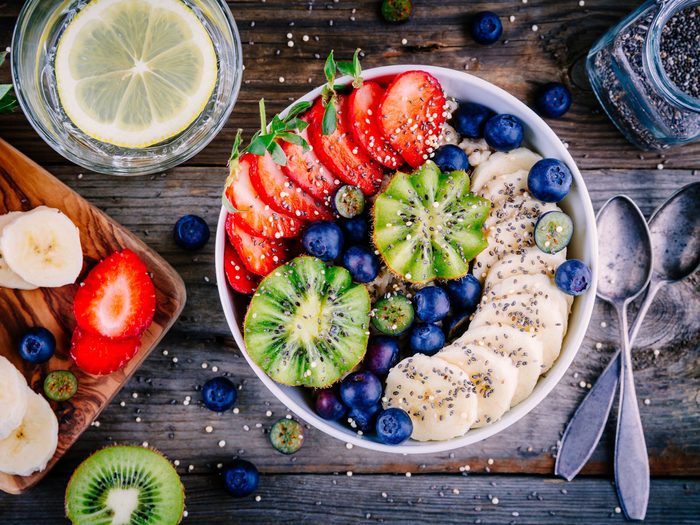
Is breakfast the most important meal of the day?
You’ve probably heard since childhood that breakfast is the most important meal of the day. And later on in adulthood, you may have heard it’s okay to skip it too (especially when you want to sleep in or are running late to work). So, what do doctors think about eating breakfast in general?
“I’ve always eaten breakfast and it is automatic in my routine, but there are good health reasons,” says board-certified dermatologist Marie Hayag, who practices in New York. “Not only does it replenish your glucose levels, it is helpful for brain power and mental alertness.”
Medical studies tend to confirm eating breakfast is associated with overall better health,” says Jeffrey Landsman, a primary care physician at Mercy Personal Physicians, Lutherville, Maryland. However, Nate Favini, an internal medicine doctor in San Francisco, points out that might be due to the fact that those who tend to eat breakfast might also engage in other healthy behaviours like exercising and getting enough sleep.
“Of course, if you do eat breakfast, what you eat matters,” adds Dr. Favini. Some foods are better choices than others when it comes to what you are eating on a daily basis. Nutella? Delicious, but not the best everyday choice. Bagel and cream cheese? Also not as healthy as some others. (Although it’s more about eating patterns than the occasional meal.)
So what is a healthy breakfast? Let’s take a look at what our doctors and other medical experts tell us they choose to use as morning fuel.
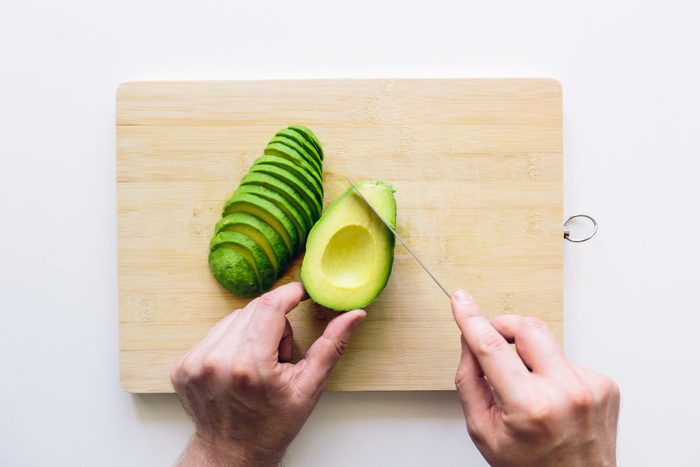
Avocado
Many of our doctors said they ate avocado as part of their daily breakfast. Dr. Hayag eats avocado with egg white omelettes and offers the following list of avocado’s health benefits:
- It contains oleic acid, which supports heart health, reduces cholesterol levels, and helps keep blood pressure steady.
- It’s a good source of lutein, an antioxidant that improves eye health by reducing the risk of cataracts and macular degeneration.
- It’s an excellent source of other antioxidants, such as vitamin E, which can keep your skin looking youthful for longer and help to minimize damage caused by free radicals.
- It may help arthritis and decreases bone loss in gum disease.
- It increases the absorption of other nutrients.
(Here are some other benefits of avocado that will have you craving it for breakfast tomorrow morning.)
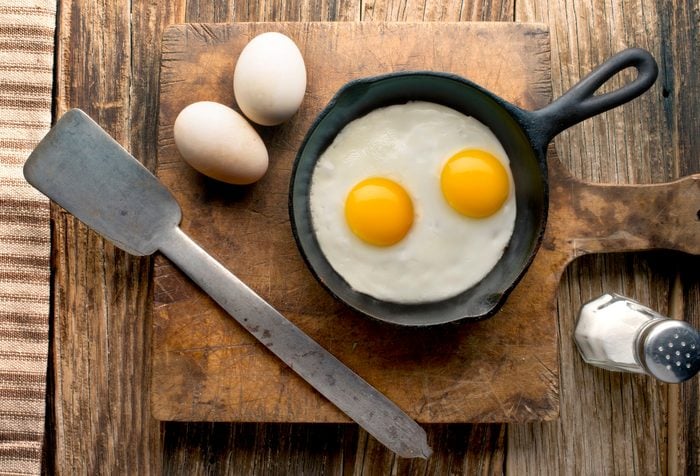
Eggs
Like Dr. Hayag, many doctors we spoke with include eggs in their morning meal. Daniel Paull, an orthopedic surgeon and founder of Easy Orthopedics in Colorado Springs, Colorado, believes in topping his avocado toast with two sunny-side-up eggs, and not just because he’s a millennial, he jokes; eggs are an excellent source of protein. As New York City pediatrician, Alison Mitzner, points out, eating a protein-filled breakfast helps prevent cravings later.
Meanwhile, Robert Karsch, another orthopedic surgeon who practices in Decatur, Georgia, eats his on toast with coffee, as does Fort Lauderdale cardiologist Tiffany Sizemore-Ruiz, who notes that the protein keeps her full while whole grain toast offers carbs and fibre for energy to get her through lunch. Meanwhile, Warren Michalski, an ER physician in Waterloo, Canada, who has type 1 diabetes, puts eggs to work in his breakfast—in the form of a veggie-heavy western-style omelette—to help stabilize his blood sugar. “Also, coffee,” Dr. Michalski adds, because he’s an ER doctor, and “nothing in a hospital gets accomplished without java!”
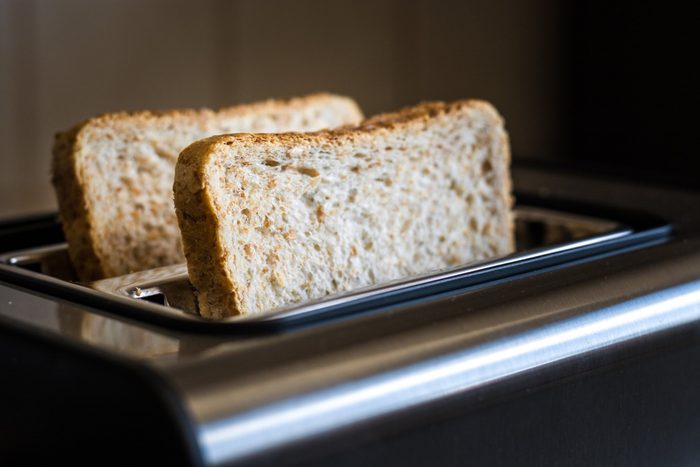
Whole grain toast
Toast is not just a delivery system for avocado for our doctors, just so long as it’s not white toast. On busy weekday mornings, Dr. Paul may forego the avocado and eggs and have just the toast, with butter. He’s careful to point out the toast must be 100 percent whole grain, and “whole wheat” doesn’t count.
Nicole Avena, a nutrition expert and Mount Sinai Medical School professor, prefers rye toast because it contains magnesium, which helps prevent muscle cramps. (She exercises right after she eats breakfast.) She also feels rye is better at stabilizing blood sugar levels.
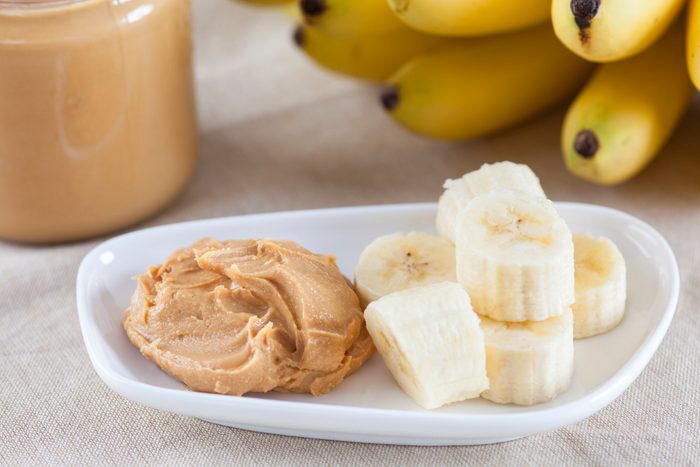
Peanut butter and banana
Ripal Shah, clinical assistant professor at the Stanford University School of Medicine says she eats this breakfast whenever she’s “on the run.” It’s a great way to boost potassium, she points out, which is important for balancing sodium intake. In addition, the sweet and salty combo provides a quick energy boost, keeping her full until she can break for a snack or lunch.
Chicago-based family medicine physician, Kavita Shanker-Patel, considers nut butters in general to be a valuable (and quick) source of protein. Dr. Shanker-Patel likes to balance that protein with filling, high-fibre fruits, of which bananas are an obvious choice.
(Check out these other energy-boosting breakfast recipes.)
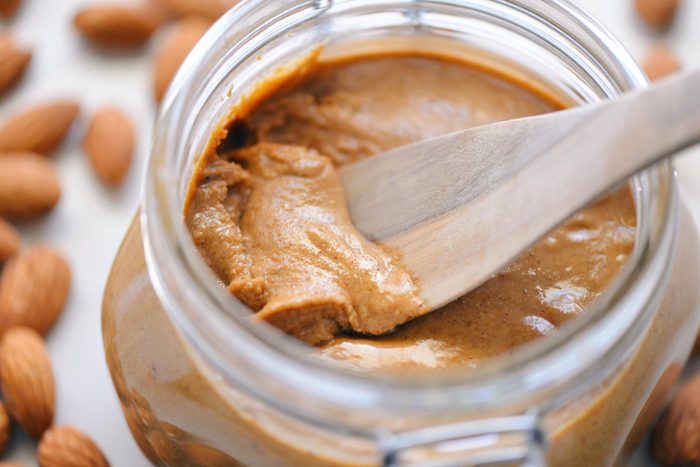
Almond butter
Almond butter is at the center of one of Dr. Landsman’s favourite breakfast options, which he calls his “Healthy Adult PB&J Sandwich,” which consists of whole grain bread with Dr. Landsman’s own homemade almond butter, and an organic strawberry spread. He also stirs it into oatmeal.
Brittany Robles, OB-GYN, and NASM certified personal trainer for pregnant and postpartum women in Brooklyn, New York, likes to stir it into her oatmeal as well— to make what she calls “Power Oats” (see below).
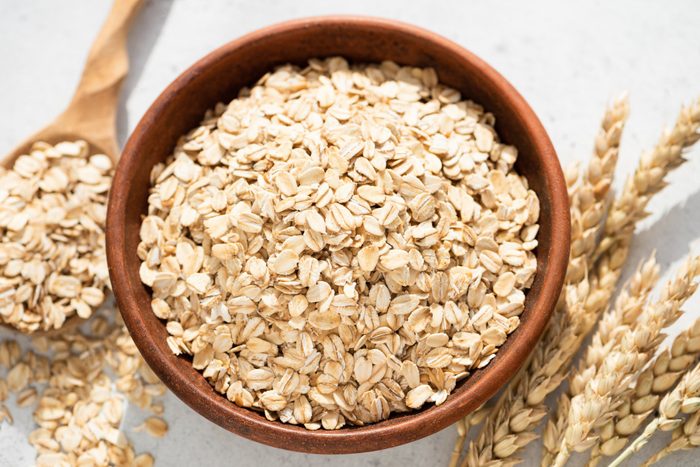
Oatmeal
Oatmeal is also a popular choice among these doctors. Dr. Favini likes it with walnuts and chia seeds, which are full of healthy oils and protein, and blueberries, which are high in antioxidants. However, he often skips breakfast as part of an intermittent fasting program. To maximize the fibre, Dr. Landsman only uses steel cut oats and adds ground flax seed and nut butter to make it even more healthy. And Dr. Robles uses oatmeal to make her Power Oats, which she finds “very satiating” in addition to being full of vitamins and minerals. To make Power Oats at home, start with 1/2 cup of rolled oats boiled in 1 cup of water and top with:
- 1 tbsp of natural almond butter
- 1/4 cup of blueberries
- 1 tbsp of chia seeds
- 1 tbsp of flax seeds
- 1 tbsp of hemp seeds
- 1 banana
(Here are some other easy breakfast ideas that are super healthy.)
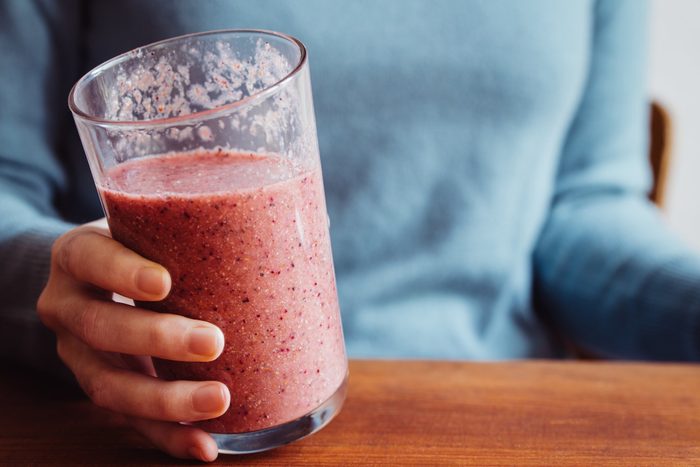
Smoothies
Dr. Mitzner makes a high protein smoothie by starting with almond milk and almond butter, although she says that Greek yogurt works well too. In either case, it’s easy and convenient while being high in protein. But not all smoothies have to be protein-focused. In fact, Dr. Landsman relies mostly on fruit and almond milk, although he does stir in some flaxseed, which is a source of protein. (Here are some of our best smoothie recipes.)
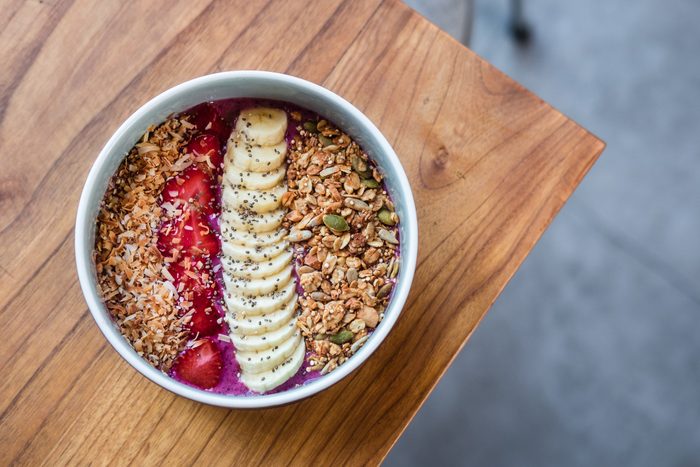
Acai smoothie bowl
A smoothie bowl is a lot like any other smoothie, except instead of drinking it, you spoon it up. This one contains frozen, smashed acai berries. When Dr. Shah has just a bit of time, she makes an acai bowl for breakfast by blending a frozen unsweetened acai packet, a handful of strawberries or a banana, a sprinkling of chia seeds or flaxseeds, and a scoop of whey protein. “Sometimes she tops it with coconut flakes, granola, or even a few dark chocolate chips. This is a hydrating, refreshing, breakfast she relies on to keep her full until lunch.
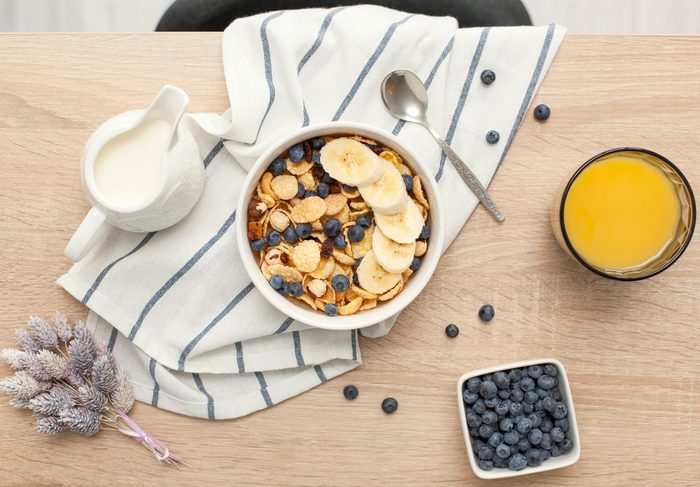
High-fibre, low-sugar cereal
“I’m a busy physician with a six-year-old little boy, so breakfast is very important in our house to keep our energy levels up throughout the morning,” says Dr. Sizemore-Ruiz, and that’s why “sugary cereals, like pancakes and waffles, are typically a no-go in our home.” Such foods, and others with high sugar content, tend to lead to a crash only a couple of hours after eating. But not all breakfast cereals are high in sugar. Some are even doctor-approved, particularly if they’re high in protein and fibre and low in sugar. Dr. Landsman includes Kashi cereal in his breakfast rotation, enjoying a bowl with unsweetened almond milk and a sprinkling of flaxseeds for an added nutritional boost.
Charles Crutchfield, an Eagan, Minnesota-based dermatologist, is another fan of cereal for breakfast, provided it’s the right cereal. For Dr. Crutchfield, a dermatologist, the “right” cereal is one that supports skin health. With that in mind, his daily breakfast, a good 95 percent of the time, consists of Shredded Wheat cereal with almond milk, topped with bananas, pecans, blueberries, strawberries, dried cranberries with almond milk. “The best vitamin supplement in the world,” he says, “doesn’t come from a bottle but from your plate having as many different colours as possible.”
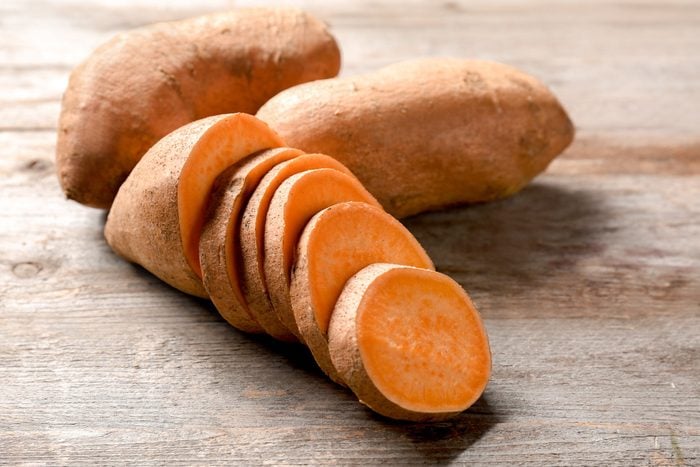
Sweet potato, ghee, and a slice of ham
Since we’re on the topic of seemingly surprising breakfast choices, now would be a good time to mention the breakfast of choice of Christine Traxler, a family medicine doctor in Le Sueur, Minnesota. Dr. Traxler grew up in a household that did not eat breakfast, which she believes contributed to a weight problem as a young adult. In fact, only when Dr. Traxler began eating breakfast did she begin losing weight (she’s now lost 160 pounds). (As previously mentioned, the science of breakfast and weight is still mixed.) And what’s her favourite breakfast? A sweet potato with some ghee and perhaps a side of ham.
“Sweet potatoes, being complex carbs, offer a healthy food choice,” Dr. Traxler explains. “Ham, is a good source of protein, which helps curb my appetite and stimulates my metabolism. And ghee, despite what you may have heard, is a healthy source of fat calories.” In addition, this breakfast provides Dr. Traxler with enough calories to get her going without spiking her blood sugar.
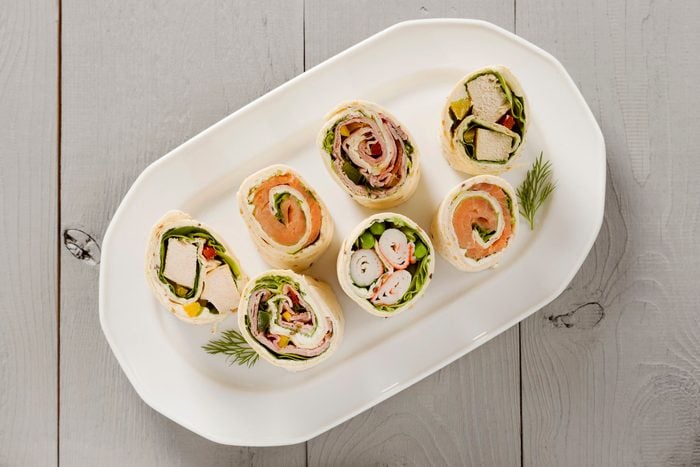
Paleo-friendly wrap sandwich
Also, a fan of a less traditional breakfast is Elizabeth Trattner, AP, an acupuncture physician in South Florida, for whom the morning meal is a no-brainer because morning is when the “digestive fire” is strongest, according to the traditional Chinese medicine she has studied. Dr. Trattner’s go-to breakfast is a gluten-free, paleo-friendly wrap sandwich she fills with smoked salmon, roasted vegetables, microgreens, and avocado. Because this combination of foods doesn’t cause the blood sugar to spike, Dr. Trattner recommends it for people with diabetes who need help in stabilizing their blood sugar.
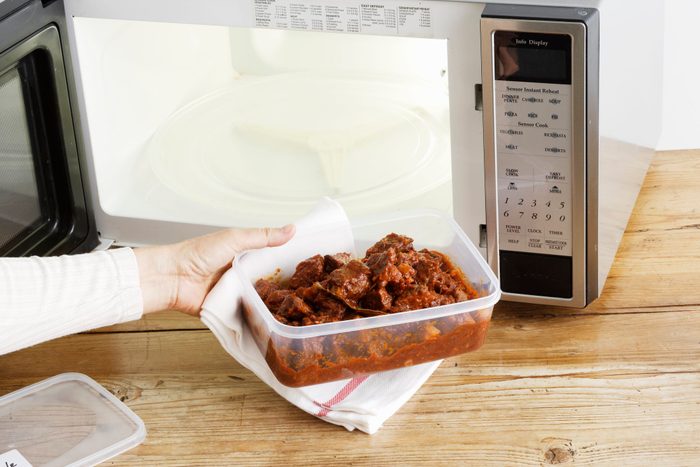
Dinner for breakfast
Dr. Trattner is a fan of starting the day by eating whatever is leftover from last night’s dinner (assuming last night’s dinner was healthy). “It sounds gross for most westerners who love sweet food for breakfast, but if it was balanced for dinner, it’s balanced for breakfast as well.”
Harvey Karp, CEO, a pediatrician, and assistant professor of pediatrics at the USC School of Medicine in Southern California, likewise sees no reason to make a distinction between night food and day food. “This past week I made a big stew of tomatoes, onions, and a little chicken and had that for breakfast. It was very tasty and satisfying,” he says. However, Dr. Shanker-Patel would go so far as to say any distinction is actually illusory because “breakfast is whatever food you start your day with.” So even if during those times when Dr. Patel practises intermittent fasting, she’s still eating “breakfast.”
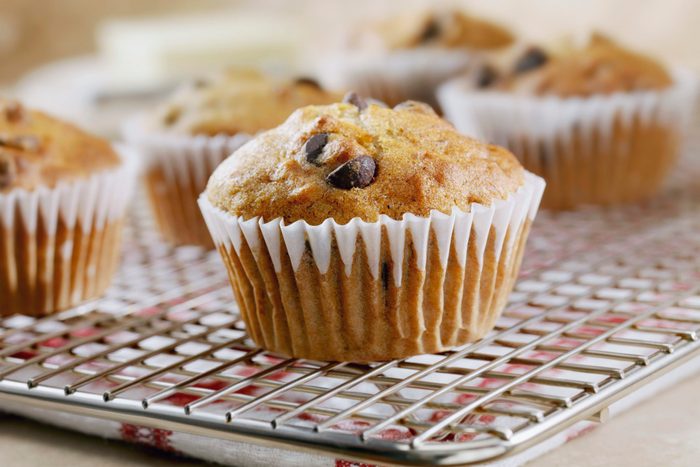
Homemade banana chocolate chip muffins
Doctors and medical experts sometimes opt for a breakfast that doesn’t appear to offer much beyond delicious taste and some energy to get the day going. “I am addicted to my homemade banana chocolate chip muffins,” says New York City-based plastic and reconstructive surgeon, Yael Halaas. She says they are “only pseudo-healthy.”
But a closer look at what Dr. Halaas refers to as “pseudo” is actually healthier than it sounds. As it turns out, the flour she uses to make her muffins is teff flour, a whole-grain flour that is gluten free and low on the glycemic index.
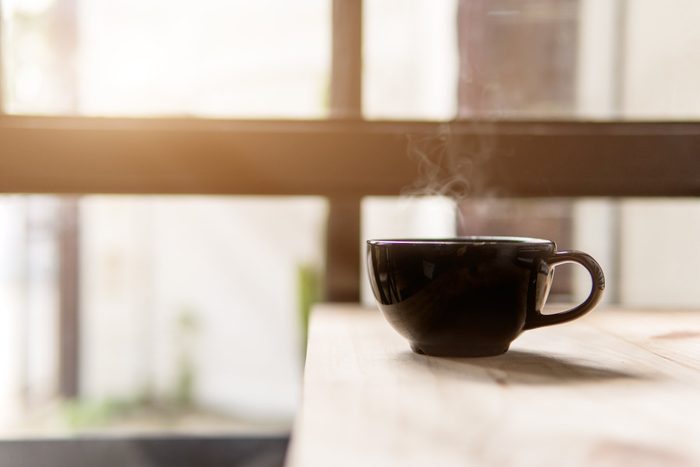
Black tea with coconut oil and honey
Turns out “eating breakfast” means different things to different people. In some cases, even if it doesn’t involve skipping breakfast entirely, it doesn’t actually involve eating. Luz Claudio, a tenured professor of environmental medicine and public health at Mount Sinai Medical School, starts her day with a cup of black tea to which she sometimes adds a teaspoon each of coconut oil and honey. “I used to have a hard boiled egg with avocado for breakfast,” Claudio tells us. But she finds it more beneficial to practise some level of intermittent fasting, and this tea supports those efforts.
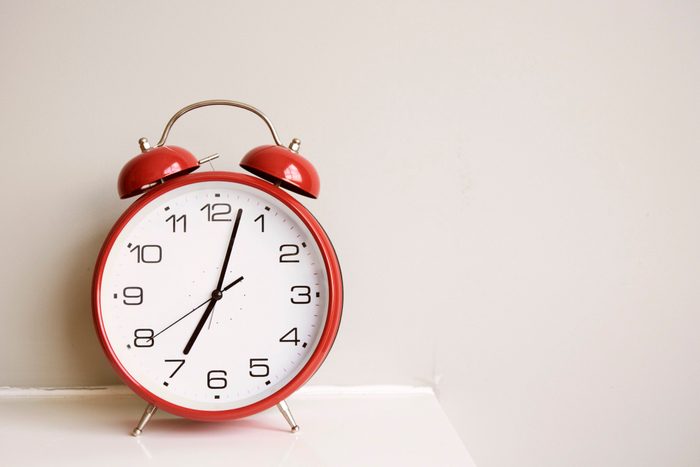
Skipping breakfast
Quite a few of the doctors and medical experts with whom we spoke with—even some of those who offered us their go-to breakfasts—revealed they see the benefit of intermittent fasting. For example, for most of the past year or so, Claudio has been fasting from 8 p.m. until noon the next day. “This makes the body go into a fasting state, which is good for weight balance and longevity.”
Dr. Favini finds that fasting in the morning helps him feel lighter and more energetic throughout the day. Dr. Shanker-Patel also makes an effort to wait until noon on some days before having her first meal.
So whether you decide to eat breakfast or wait to eat a bit later in the day, there are many options to choose from.
Next, check out these incredible dessert recipes you won’t believe are healthy.
